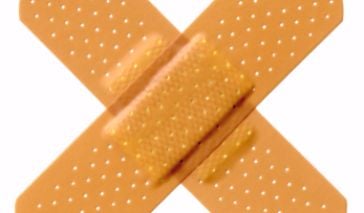Following your doctor’s instructions for recovery after a vasectomy can help you return to your normal activities faster and reduce the risk of complications. Here, we share a few tips to make your recovery speedy.
1. Wear supportive underwear immediately after your vasectomy
Wear supportive underwear or a jockstrap day and night for the length of time recommended by your surgeon. This harness reduces the tension on the spermatic cords, the structures that run to each testicle and contain the vas deferens, surrounding tissues, and testicular blood supply.
Be sure to change your underwear every day, and place a bandage beneath your underwear for more support.
2. Manage your discomfort with Tylenol and ice packs
Expect mild pain, swelling, and bruising for a few days after a vasectomy. Try Tylenol (acetaminophen) for pain, but avoid blood-thinning medications like Bayer (aspirin) and Aleve (naproxen) as these can lead to post-surgical bleeding.
Wrap an ice pack in a towel and gently apply it to the scrotum for the first two days to reduce swelling and minimize discomfort. Apply the pack for 20 minutes a day, multiple times a day. If you don't have one handy, a hack is to use a frozen bag of veggies or a thin, folded washcloth.
3. Take medications as prescribed—both before and after vasectomy
Being older, having a poor diet, smoking, using corticosteroids (drugs for treating rheumatoid arthritis, lupus, asthma, allergies, and many other conditions), having immune system problems or diabetes can put you at higher risk of infection after the vasectomy.
If you have one of these risk factors, your doctor may prescribe antibiotics before your procedure. Continue taking these medications as prescribed after your surgery.
4. Keep the surgical site clean and dry
Maintaining good hygiene is critical to reducing your risk of infection. When your surgeon clears you to shower—which may be the day after your vasectomy—wash the area gently with soap and water. Be sure to dry your genital area thoroughly by gently patting it with a towel or using a blow dryer.
Remember that while you can shower, you should avoid bathing in a tub of water or swimming for five days.
5. Limit your activity for at least 24 hours
You will need to rest for at least 24 hours following the procedure. For 2 to 3 days, you should limit yourself to only light activities. Avoid sports and lifting anything more substantial than 10 pounds for at least one week after the surgery. If you push yourself too hard, you may reopen your incisions or cause bleeding inside the scrotum or increase your pain.
6. Return to work when ready
If you don’t have severe discomfort, you should be able to return to work 1 to 2 days after your vasectomy, as long as it is non-physical activity. If your job involves more strenuous activity, like heavy lifting or driving, ask your doctor when you can return to work.
7. Avoid sex and ejaculation for up to a week after vasectomy
Refrain from sex and ejaculation for one week following a vasectomy to allow the incision or small opening on the scrotum time to heal and for the severed ends of the vas to seal.
When you resume sexual activity, you may notice blood in your semen or feel more pain; this is common upon the first few ejaculations. It can also take several months (20 to 30 ejaculations) for your semen to be completely free of sperm. Use another form of birth control until your doctor has rechecked your semen and given you the all-clear.
8. Watch out for signs of infection
Call your doctor right away if you notice any signs of an infection, such as an elevated temperature (over 100.4 F or 38 C) or blood leaking from the site of the incision, or if you experience an increase in pain, swelling or bruising. Infections occur in about 1-2 percent of vasectomy patients. These are usually minor and respond favorably to antibiotic treatment and antimicrobial creams. More serious infections are rare.
Reviewed By


